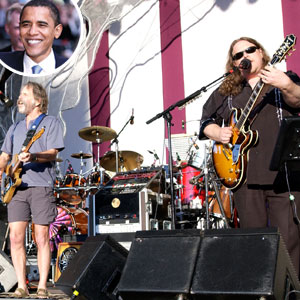RABAT, Morocco (Reuters) - Morocco's Gnawa, heirs to a musical and spiritual tradition brought north across the Sahara centuries ago by black slaves, are enjoying new fame as their hypnotic rhythms hook listeners across the world.
The Gnawa brotherhoods have long scraped a living on the margins of Moroccan society by offering to restore health or good fortune through seances of trance and incantation.
They symbolize the rich cultural mix of a country at the crossroads of Africa, Europe and the Arab world and many Moroccans say they are part of their national identity.
But Islamists, whose influence has grown among working-class Moroccans, have undermined their status by condemning their hedonistic lifestyle and belief in supernatural beings of African origin.
Now, the Gnawi have found an inadvertent champion in the north African kingdom's government as it seeks to bolster Morocco's moderate Maliki strain of Islam -- with its Sufi mysticism and cult of saints -- to counter Islamic extremists.
The government's aim is to entrench Maliki Islam to help discredit the more hard-line Salafist and Wahhabi doctrines that originated in the Middle East.
Authorities have promoted regional Moussems, or festivals, that involve the veneration of local saints and held international events to showcase and discuss Sufi identity.
The Gnawa have indirectly benefited because they derive their spiritual authority from the same beliefs.
The government also knows the exotic and free-spirited Gnawi are a powerful draw for tourists, and it has backed an annual Gnawa and World Music festival in the windy Atlantic city of Essaouira that this year drew almost half a million visitors.
The festival has propelled mainly poor musicians into the world music major league, introducing them to large audiences from Boston to Berlin.
"The children of Gnawi were once turning to other professions as they could not survive," said Essaouira festival organizer Neila Tazi. "Now more of them are choosing to become Gnawis and inherit the repertoire of their fathers."
TALISMANIC SHELLS
Only some Gnawi are of black African descent but their culture arrived in Morocco in the late 16th century when emissaries of the Saadian king Ahmed el-Mansour Dehbi returned from a mission in modern-day Mali with gold and slaves.
The slaves were put to work near Essaouira, processing sugar for export to Europe. When the factories shut a few years later, they mixed with local Berber and Saharan tribes.
Their belief in sub-Saharan divinities, such as Mimouna, and rites of possession fused with local Islamic beliefs in demons, or djnoun, and saints like Abdel Kader Jilali and Moulay Brahim.
Today, the Gnawi are a common sight when Moroccans come together to celebrate.
"The Gnawi play the most powerful music because they are outsiders," said Tony Langlois, an ethno-musicologist at Cork University in Ireland.
"You can't have a wedding or a circumcision without them being there, but you wouldn't want your daughter to marry one."
The first step to seeking help from the Gnawi is to call on a Tala'a, a woman with magic and religious powers who seeks advice from spirits using talismanic shells, scents and colors.
Often, she will recommend that clients hold a lila, an all-night ritual of possession.
An animal is paraded through the streets and then eaten. At midnight the possessed dresses in the color of the demon afflicting him. The Gnawa call upon the saints or spirits to take possession of those present using dancing, chant, krakeb iron castanets, galga goatskin tambourines and the gelbri, a type of bass lute made of fig-tree wood.
The offended spirit is placated through a complex, frenetic ritual involving specially chosen colors, perfumes and musical patterns symbolizing the cosmic elements. At dawn, the elements are reunited and the human body's powers re-balanced.
Lilas can be used to cure scorpion stings, welcome home migrants, and bring success in studies or job-hunting.
Gnawi say they are kept busy with lilas, despite the disapproval of Islamists, but now foreign music sales and concerts are making a small number much wealthier than before.
LOST ROOTS?
Gnawa music fuses well with other styles, such as blues and jazz whose roots also lie in sub-Saharan Africa.
Moroccan groups like Nass el Ghiwane and Darga have brought Gnawa elements to concert stages at home and helped ensure the country's musical heritage is not subsumed by Lebanese pop.
But some Moroccans say the Gnawi's new fame has severed the music from its spiritual roots, turning it into disposable folklore.
They say the split began when hippies visiting Essaouira in the late 1960s asked a famous Gnawi, Abderrahman Paca, to organize a lila at their seaside villa. It widened when the Essaouira festival appeared in 1997, mixing Gnawa with music that had no obvious spiritual function.
"The Gnawi no longer serve their traditional purpose -- they're just playing world music like all the rest," said Moroccan ethno-musicologist Abdelkader Mana.
Tazi says the festival has restored the Gnawi's standing.
"You saw them playing for coins in the street or in tourist hotels ... They were perceived as just beggars," the festival organizer said.
Successful Gnawa musicians deny they have abandoned their social function for material gain.
Hamid El Kasri from the northern city of Ksar el Kebir, a regular at the Essaouira festival, says he has sold 300,000 CDs in the past 15 years and recently played to 12,000 in Germany.
But he still is obliged to perform lilas when requested.
"Lilas are spiritual occasions. We cannot refuse to perform a lila just because our host is poor," he says. "Lilas are the only thing I cannot do without."
(For full Reuters Africa coverage and to have your say on the top issues, visit: http://africa.reuters.com/ )
Half-sisters win fight to direct Bayreuth Festival
(AP)‘Hamlet 2′: The Play’s The Thing, By Kurt LoderMickey Rourke Explains His Preparation For ‘The Wrestler’: ‘I Had Some Demons’























